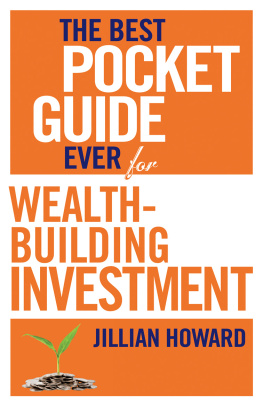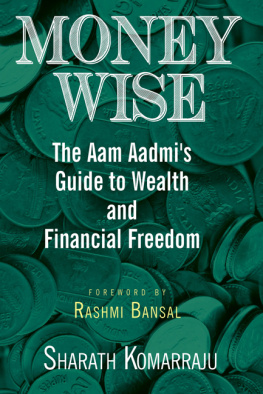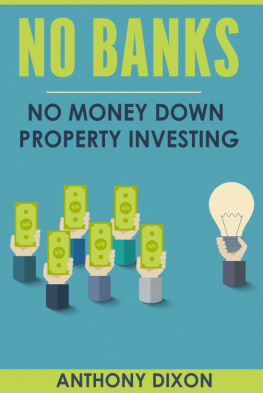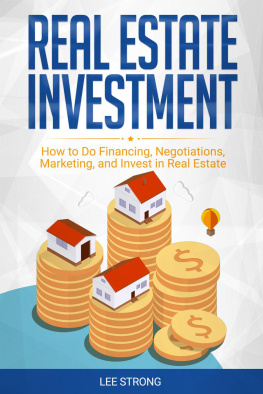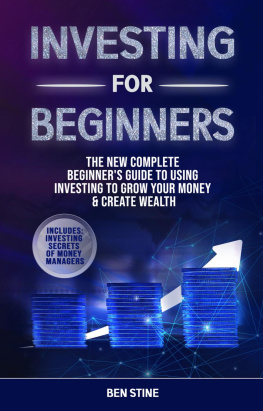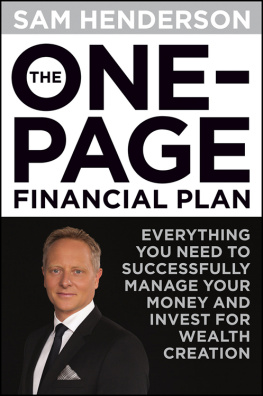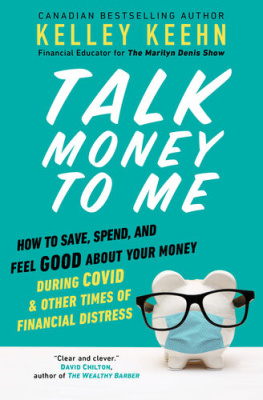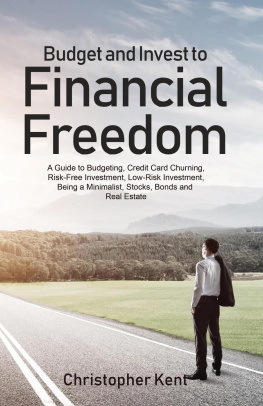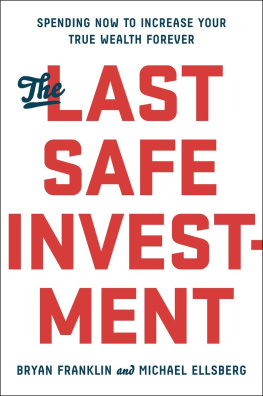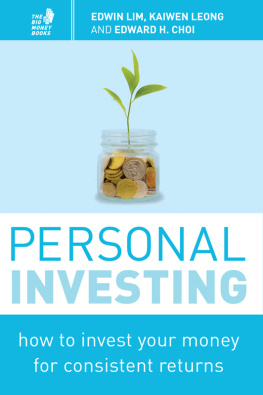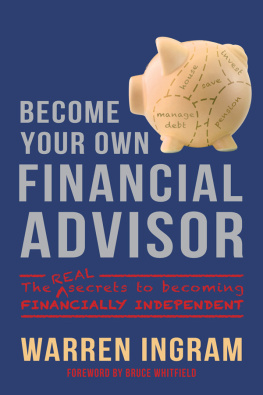About the author
There are hundreds of questions surrounding successful investing and building wealth and I think I have been asked every one of them over the past 20 years. Where to invest, how to invest, how to diversify, whom to trust, how to save on costs, which investments perform the best and yet are safe ... the list goes on and on.
The fact is, Ive asked a good many of them myself.
Ive worked in the financial industry all of my adult life, in one form or another, and have always been fascinated by rags to riches stories in particular. I am ever curious about how people have made their fortunes. How have they built an empire out of an idea or a fortune from a decision? Why do some people get it right and some people get it horribly wrong? What are the secret ingredients? Ive been looking for the recipe for years.
To establish my credentials and to show that I have the necessary knowledge and experience to offer some worthwhile investment coaching, let me give you some personal background.
Financial planning has been in my blood for a very long time. Long before qualified financial planners were heard of, in the old days when insurance brokers were let loose to sell financial products in any and every conceivable manner, I worked as a deceased estates administrator. There I learnt that if proper financial planning hadnt been done during life, things go awry, financially speaking, at death.
Insurance brokers who also sold investment products had an easier time back then selling their wares. Without any need to back up their promises, their products looked great, and indeed many were, when properly sold to the right people.
Most deceased estates are tricky to sort out. I treated them as jigsaw puzzles you collect all the pieces of a persons finances together, try to make sense of them, put them all in a specific order, and finally you get the full picture. Fortunately, I was able to administer a few estates where proper financial planning had taken place and so I witnessed the enormous relief of families that didnt have great financial stress (and all that this entails, like relocating and having to sell items of sentimental value) added to their sometimes overwhelming grief.
Estate departments also look after assets under curatorship (people who no longer have the mental strength or desire to worry about such things), and my exposure there to the different asset classes and their performances over the years (some records went back 30-odd years) stimulated my curiosity to understand how investments work and impact on wealth creation over time. Like every young, ambitious person I wanted to make money in the best way possible in the shortest time possible and with the greatest of ease, and so I decided to study finance. I wanted to help myself first (dont we all?) and then share my knowledge with as many people as possible to prevent the confusion and heartache that I had witnessed so often.
I studied long and hard (B.Comm. and CFP), researched hundreds of books, and worked even harder at various investment, insurance and banking institutions. When I thought I knew enough (from experience as well as study), I became a financial planner. I loved being a planner and worked in this role for many years. I derived a great deal of satisfaction from explaining clearly how all manner of financial tools work to either grow or protect (or both) ones hard-earned cash. Once again I used the principle of a jigsaw puzzle, except that this time there were missing pieces that needed to be created if the whole picture was to be a successful one.
During those years I noticed that a great many fellow financial planners (or advisors, as they are sometimes called) seemed to struggle with some of the many aspects of this profession and I was keenly motivated to help them to overcome obstacles so that they, too, could enjoy their work and be more successful. Good financial planners can make such a difference to so many families.
I had the most wonderful luck to be employed in what was then a new and exciting field to coach financial planning. Further studies in results coaching ensued, but the practical application of the 12-session coaching process was awesome. I coached everyone in sight and we were all delighted with not only improved finances but also new insights, learning and personal growth. The financial planners I coached unblocked those kinks that were hampering their businesses and naturally their production increased, but so did their job satisfaction.
My next ambition was to think of a way to help both financial planners and the general public by using the practical tools Id learnt over the years.
And so I started my own company and website offering coaching to both. I realised that in order to make pertinent decisions about their money, the layperson needed to be presented with information in clear, plain language and not the language that is used in so many financial advisory books out there. This does not imply that non-financially educated people are stupid. Not at all! Its just that financial jargon is not necessarily understood by people who do not operate in the financial world.
I love this quote by Albert Einstein: Everybody is a genius. But if you judge a fish by its ability to climb a tree, it will live its whole life believing that it is stupid.
This quote has a Dr Seuss feel to it (anybody else out there imagining a fish climbing a tree?), but it perfectly illustrates my point that we need financial information delivered in a clear and concise way for all the fish out there believing that they need to climb trees.
This book, and the rest of the series on the other frequently tackled personal finance topics, will do just that.
Preface
I have written this book because I truly believe that every person can learn how to control their own money. When its broken down into bite-sized pieces, investing is not that difficult.
Many people have a psychological block against planning their finances, similar to that experienced in the maths classroom at school. This book will help you to get over that mental block, guiding you through the various steps you need to take to get going.
For those who have a thirst for knowledge of investment, this book is a great starting point.

www.jillianhoward.com
The difference between
saving and investing
Lets first understand that there is a difference between saving and investing.
At a very basic level, saving works like this: when we want to buy something that costs more than we can afford in one month, we put an amount of money aside every month until we have enough saved to buy that item. We all learn during childhood to save this way for the things we want. For example, a teenager might generate extra income by doing chores for money and save most of his monthly allowance by spending less to buy a flat screen for his computer, or something similar that his parents do not think is entirely necessary. As adults we might save for holidays, expensive items (such as an enhanced gaming facility some of us stay in our childhoods for a long, long time) or a deposit on a new home. We allocate an amount from our earnings every month and set it aside to ensure that on a given future date we have enough to buy what we want. Basic stuff.
This is one characteristic of saving: we intend to use the saved money to purchase something at a later date.
However, some people simply save for a rainy day. Their monthly income exceeds their expenses and spending habits and instead of finding more things to spend their money on, they make the decision to save the extra cash. In my experience, very few people do this. We need more of them!

